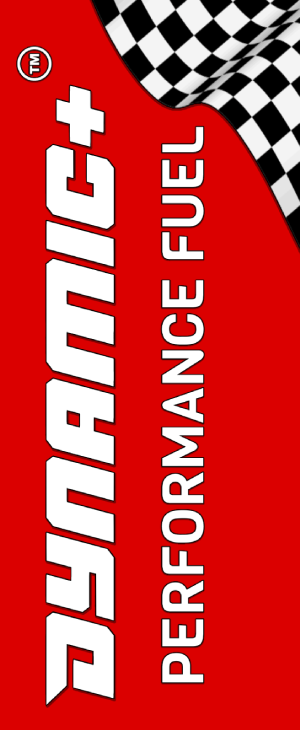Products
Diesel
European DIESEL ULSD 10 ppm EN-590
Ultra-low-sulfur diesel (ULSD) is diesel fuel with substantially lowered sulfur content. ULSD has a lower energy content due to the heavy processing required to remove large amounts of sulfur from oil, leading to (1 to 2%) lower fuel economy.
EN590 describes the physical properties that all automotive diesel fuel must meet if it is to be sold in the European Union and several other European countries.
Diesel automatically ignites and burns when it is compressed to a very high pressure. The released energy is contained by the engine and powers the vehicle. The key difference between diesel and petrol engines is auto-ignition. A spark plug ignites the fuel in a petrol engine whereas a diesel engine auto-ignites. Diesel has a Cetane Index and Number rather than the Research Octane Number (RON) that petrol has.
10 ppm Diesel is a low emission/environmentally clean diesel fuel with a sulphur content less than 10 parts per million (ppm) which can be used in all diesel engines. It is especially suitable for diesel engines designed to meet the latest European and American emission standards.
Gasoline
European UNLEADED GASOLINE RON 98
The most common type of octane rating worldwide is the Research Octane Number (RON). RON is determined by running the fuel in a test engine with a variable compression ratio under controlled conditions, and comparing the results with those for mixtures of iso-octane and n-heptane
Premium Unleaded (98 RON) is standard unleaded petrol. Despite the name ‘premium’, it’s actually the standard petrol sold all over Europe.
98 RON refers to the octane level of the petrol. This is a measure of how easily the fuel will ignite inside an engine. Higher octane levels mean that the fuel will not ignite as easily and are required for some (a few) high performance engines.
Premium unleaded is suitable for almost all petrol engines. You should be safe to use it unless your car’s user manual specifically specifies that you should only use petrol with an octane rating higher than 98. Very few cars require this.
| Name | Unit | Testing Method | Min | Max |
| Density at 15°C | kg/m³ | ASTM D 1298 S SH 33 : 1986 |
720 | 775 |
| R.O.N | ASTM D 2699 | 95 | – | |
| M.O.N | ASTM D 2700 | 85 | – | |
| Distillation Evap at 70°C Evap at 100°C Evap at 150°C FBP Residue |
%v/v %v/v %v/v °C %v/v |
EN/ISO 3405 ASTM D 86 |
20 46,0 75 |
48 71,0 – 210 2 |
| Sulphur | mg/kg | S SH EN ISO 16135 SH EN ISO 20846 |
– | 10 |
| Apparence | bright & clear | Visual inspection | Visual inspection | |
| Copper Strip Corrosion ( 3 hours at 50 °C ) |
S SH EN ISO 2160 | Class 1 | Class 1 | |
| Oxidation Stability | minutes | S SH EN ISO 7536 | 360 | – |
| Lead Content | mg/l | ASTM D 4294 | – | 5 |
| Magnesium content | mg/l | S SH EN 16135 S SH EN 16135 |
6,0 2,0 |
– |
| Solv Washed | mg/100ml | S SH EN ISO 6246 | – | 5 |
| Hydrocarbon Content Olefins Aromatics |
%v/v %v/v |
– ASTM D 5845ASTM D 5845 |
– – – – |
– 18,035,0 |
| Benzene | %v/v | ASTM D 6277 | – | 1,0 |
| Other Oxygenates Methanol Ethanol so-Propyl Alcohol Iso-Butyl Alcohol Tert-Butyl Alcohol |
%v/v %v/v %v/v %v/v %v/v |
ASTM D 5845 S SH EN 1601 S SH EN 13132 S SH EN ISO 22854 |
– | 3 5 |
| Ethers Containing 5 or more | %v/v | S SH EN ISO 22854 |
Gas
Liquefied Natural Gas (LNG)
Liquefied Natural Gas fuel (LNG) is produced from a mixture of raw components but is predominantly methane and is compatible with diesel technology, subject to the necessary modifications. Since the composition of methane is CH4, Natural Gas Vehicles (NGVs) are burning fuel with a relatively low carbon to hydrogen ratio. Our estimate of energy density is 60% compared to diesel.
LNG cannot be converted to a liquid by pressure alone but must be cooled to a very low temperature (lower than -160°C), a process which removes some impurities such as sulphur and water.
The LNG must be stored and transported permanently at around this temperature and this is accomplished by super insulation in a pressurised, double tank system, similar in principle to a thermos flask, together with a venting system to take away vapour. The storage pressure of about 8 bar (8 x atmospheric) is not regarded as very high but because of the insulation requirements the tanks are large, the fuel is only suited to large, heavy diesel vehicles such as trucks, buses and HGVs.
Although the energy density is about 60% compared to diesel the fuel costs are much lower and LNG should give lower running costs.
When compared to diesel, NGVs are quieter and local emissions of pollutants are much reduced. The main drawback, global pollution associated with the burning of fossil fuels, is being addressed because the last few years have seen the growing use of bio methane or biogas (natural gas derived from organic and renewable sources, including waste) as the source of LNG and the same applies to CNG.
Oils and lubricants
Shell HELIX
From Helix Ultra fully synthetic motor oils that offer unsurpassed protection against sludge and superior wear and corrosion protection, to premium multigrade oils for everyday driving environments, the Helix range of motor oils has an oil to suit every engine.
Fully synthetic oils are manufactured from 100% synthetic base stock to achieve higher performance levels than both synthetic technology and mineral oils
Shell AdBlue
AdBlue is a fluid made up of a mix of urea (32.5%) and deionized water (67.5%) and is certified according to ISO 22241. AdBlue is squirted into the exhaust system, helping to reduce nitrous oxide emissions produced by diesel engines. With car manufacturers having to adhere to ever more stringent emissions targets, AdBlue is vital to make sure diesel cars pass tests and produce less harmful pollution.
MOL
Chain-saw lubricating oil for logging and cutting works. Provides long service lifetime of the chain even under heavy conditions. Recommended for all chainsaws (Stihl, Husqvarna, Partner etc).
| Properties | Typical values |
| Density at 15°C [g/cm3] | 0,885 |
| Kinematic viscosity at 40°C [mm2/s] | 100 |
| Kinematic viscosity at 100 °C [mm2/s] | 10,8 |
| Viscosity index | 90 |
| Pour point [°C] | -27 |
| Flash point (Cleveland) [°C] | 260 |
Anti-freeze
Antifreeze, also called coolant, is the colored fluid (usually green or red) found in your radiator. Antifreeze serves a few purposes. The most important is keeping the water in your radiator and engine from freezing in cold temps. It also keeps that same water from boiling over in the summer. Radiators are normally filled with a 50/50 mixture of antifreeze and water. The third function of antifreeze, or coolant is lubrication — it lubricates the moving parts it comes in contact with, like the water pump.
The key chemical component in today’s coolants is ethylene glycol. Mixed correctly, this stuff can keep your radiator fluid from freezing even if the temperature is less than 30 degrees below zero! That’s cold. The amazing thing is that it can also keep the same fluid from boiling at as much as 275 degrees F. Antifreeze can really get control of those water molecules!
Break Fluid
Brake fluid is a type of hydraulic fluid used in hydraulic brake and hydraulic clutch applications in automobiles, motorcycles, light trucks, and some bicycles. It is used to activate your brakes. But like any fluid in your vehicle, brake fluid needs to be checked regularly and occasionally changed. Most brake fluids used today are glycol-ether based, but mineral oil (Citroën liquide hydraulique minéral (LHM) and silicone (DOT 5) based fluids are also available.
Brake fluids must meet certain requirements as defined by various standards set by organizations such as the SAE, or local government equivalents.
DYNAMIC+ Diesel
Gega Oil DYNAMIC+ Diesel represents our most advanced performance fuel, enhancing your engine’s fuel efficiency.
Performance:
Dynamic+ Diesel effectively eliminates up to 100% of deposits that impede performance, safeguarding crucial engine components like fuel injectors against future buildup.
Higher Cetane Rating:
Dynamic+ Diesel boasts a higher cetane rating, reaching up to 60. The greater the number, the more efficiently the fuel ignites within the vehicle’s engine, and our diesel stands out with the highest cetane value available in the market.
Enriched with Enhanced Cleaning and Protective Agents:
Formulated with a 60% increase in cleaning and protective agents, it revitalizes your engine’s performance to its full capacity. This fuel offers the deepest cleansing of Internal Diesel Injector Deposits and shields your vehicle’s Exhaust Gas Recirculation emissions control system.
It eradicates and guards against the accumulation of deposits that compromise performance on vital fuel system components such as intake valves and fuel injectors. Tests conducted under industry standards and by Gega Oil demonstrate the improved fuel economy achievable with Dynamic+ Diesel. However, actual outcomes and advantages may vary based on factors including vehicle type, age, condition, and driving habits.


